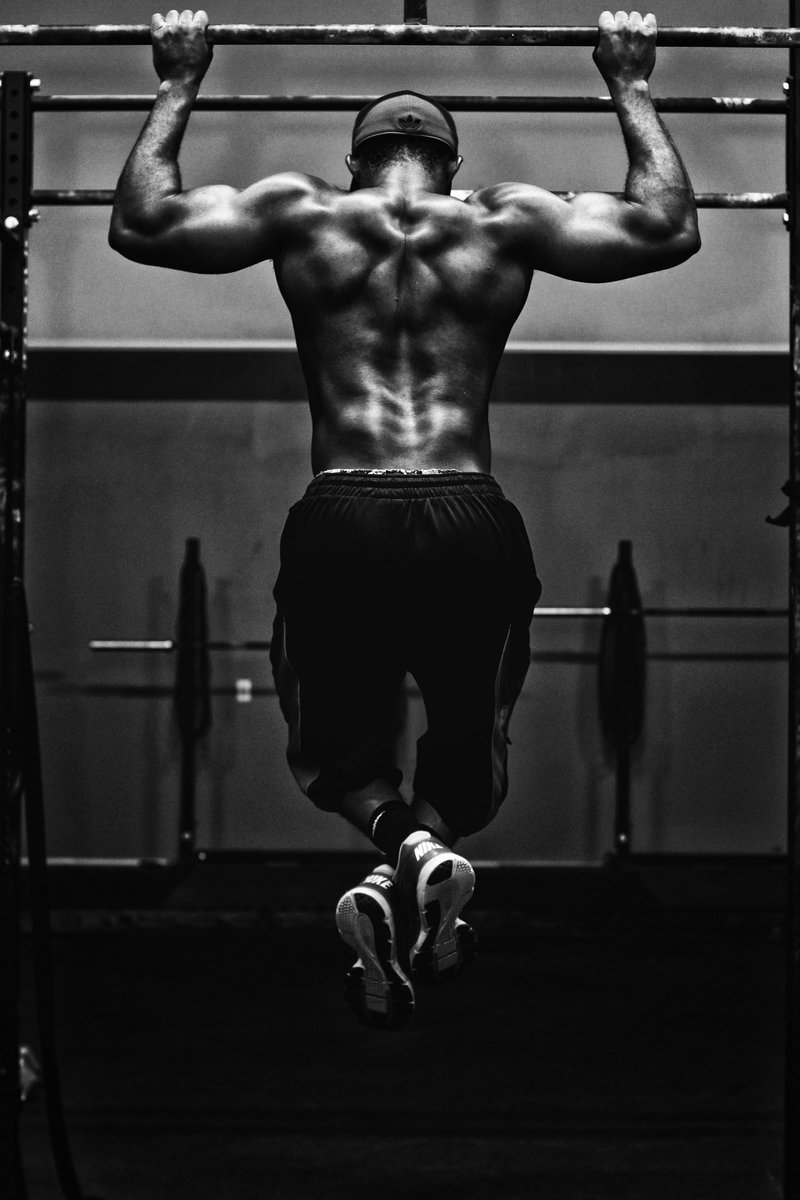🎮 Gaming Is Fun—Until It Destroys Your Testosterone
If you’re a guy who games for hours daily, you might want to pause that next match. The connection between gaming and testosterone isn’t just clickbait—science is starting to uncover some uncomfortable truths. From sedentary behavior to dopamine overload, gaming may be silently draining your masculinity.
Sitting Too Long, Moving Too Little
Extended gaming sessions often mean sitting for hours without physical activity. And the result? Less muscle stimulation, poorer circulation, and a drop in metabolic function. All of these are linked to lower testosterone levels. Your body thrives on movement—testosterone responds to resistance, not recliners.
Blue Light and Sleep Disruption
Most gamers play into the night, often surrounded by artificial blue light. This suppresses melatonin production, delays sleep, and ultimately wrecks your hormonal rhythm. If you’ve already read our piece on sleep deprivation and libido crash, you know how crucial sleep is for testosterone production.
Dopamine Overload and Motivation Loss
Gaming delivers quick hits of dopamine—your brain’s pleasure chemical. But over time, it desensitizes your reward system. Real-life achievements (like building muscle, pursuing sex, or hitting goals) start to feel less rewarding. That’s not just motivation loss—that’s a biochemical imbalance that directly impacts testosterone.
The Gamer’s Posture Problem
Slouching for hours over a controller leads to poor posture, spinal stress, and tight hips. This physical stagnation impacts testosterone through reduced oxygenation and stress hormone elevation. In other words: sit like a zombie, feel like one too.
How Porn and Gaming Interact
Gamers are also more likely to consume digital porn—especially immersive formats like VR porn. This combination bombards the brain with stimulation while requiring zero physical effort. The long-term result? Lower libido, weaker erections, and testosterone imbalance.
Stress Response and Competitive Burnout
Online multiplayer games activate your stress response with every loss, rage quit, or toxic chat encounter. Constant spikes of cortisol—the stress hormone—work against testosterone. Chronic stress has been proven to shrink testicles and reduce sperm count in clinical studies.
Low-T Symptoms in Young Gamers
Guys in their 20s are reporting symptoms once only seen in aging men: brain fog, low sex drive, weight gain, emotional flatness. Many don’t realize gaming might be part of the cause. While gaming in moderation is fine, marathon sessions are sabotaging your hormones.
Signs Your Testosterone Is Being Affected by Gaming
- You no longer get morning wood regularly
- You feel anxious or down after long sessions
- You lack motivation for real-world goals
- You’re gaining fat despite eating the same
- Your sex drive feels flat or mechanical
Is All Gaming Bad for Testosterone?
No. The problem isn’t gaming itself—it’s how and when you do it. Playing for a bit after work or enjoying a game on weekends isn’t harmful. But if it’s replacing exercise, sex, sun exposure, and social contact, then yes—your testosterone is taking a hit.
Want to reverse the damage? Start with the full recovery guide here.
How Excessive Gaming Can Lower Your Testosterone Levels
If you’re a guy who games for hours daily, you might want to pause that next match. The connection between gaming and testosterone isn’t just clickbait—science is starting to uncover some uncomfortable truths. From sedentary behavior to dopamine overload, gaming may be silently draining your masculinity.
Sitting Too Long, Moving Too Little
Extended gaming sessions often mean sitting for hours without physical activity. And the result? Less muscle stimulation, poorer circulation, and a drop in metabolic function. All of these are linked to lower testosterone levels. Your body thrives on movement—testosterone responds to resistance, not recliners.
Blue Light and Sleep Disruption
Most gamers play into the night, often surrounded by artificial blue light. This suppresses melatonin production, delays sleep, and ultimately wrecks your hormonal rhythm. If you’ve already read our piece on sleep deprivation and libido crash, you know how crucial sleep is for testosterone production.
Dopamine Overload and Motivation Loss
Gaming delivers quick hits of dopamine—your brain’s pleasure chemical. But over time, it desensitizes your reward system. Real-life achievements (like building muscle, pursuing sex, or hitting goals) start to feel less rewarding. That’s not just motivation loss—that’s a biochemical imbalance that directly impacts testosterone.
The Gamer’s Posture Problem
Slouching for hours over a controller leads to poor posture, spinal stress, and tight hips. This physical stagnation impacts testosterone through reduced oxygenation and stress hormone elevation. In other words: sit like a zombie, feel like one too.
How Porn and Gaming Interact
Gamers are also more likely to consume digital porn—especially immersive formats like VR porn. This combination bombards the brain with stimulation while requiring zero physical effort. The long-term result? Lower libido, weaker erections, and testosterone imbalance.
Stress Response and Competitive Burnout
Online multiplayer games activate your stress response with every loss, rage quit, or toxic chat encounter. Constant spikes of cortisol—the stress hormone—work against testosterone. Chronic stress has been proven to shrink testicles and reduce sperm count in clinical studies.
Low-T Symptoms in Young Gamers
Guys in their 20s are reporting symptoms once only seen in aging men: brain fog, low sex drive, weight gain, emotional flatness. Many don’t realize gaming might be part of the cause. While gaming in moderation is fine, marathon sessions are sabotaging your hormones.
Signs Your Testosterone Is Being Affected by Gaming
- You no longer get morning wood regularly
- You feel anxious or down after long sessions
- You lack motivation for real-world goals
- You’re gaining fat despite eating the same
- Your sex drive feels flat or mechanical
Is All Gaming Bad for Testosterone?
No. The problem isn’t gaming itself—it’s how and when you do it. Playing for a bit after work or enjoying a game on weekends isn’t harmful. But if it’s replacing exercise, sex, sun exposure, and social contact, then yes—your testosterone is taking a hit.
How Testosterone Reacts to Lifestyle Stimuli
Testosterone is highly responsive to your environment. When you lift heavy weights, take risks, compete physically, or have real-life sex, your body rewards you with hormonal surges. When you sit still, consume endless stimulation, and avoid discomfort, your testosterone stagnates—or even drops.
Gaming offers the illusion of competition and victory. But your body knows the truth: there’s no physical challenge, no real consequence, no reward beyond the screen. That’s why gamers often experience emotional highs with no physical payoff—leading to biological confusion and hormonal imbalance.
Digital Castration: The Silent Risk
It sounds harsh, but many researchers have coined terms like “digital castration” to describe what happens when men trade physical engagement for virtual escapism. While it doesn’t mean literal castration, it reflects a very real trend: shrinking testosterone, sperm quality, and sexual aggression.
Pair that with frequent ejaculation from gaming breaks involving porn, and the result is what we explore in our piece on ejaculation frequency and testosterone. You’re not just gaming—you’re draining your body’s primal fuel.
From Gamer to Warrior: A Transition Plan
You don’t have to quit gaming entirely to recover your testosterone. You need to rebalance. Here’s how:
- Limit sessions to 1 hour max: Set a timer. Respect it.
- Train before you play: 20 minutes of intense exercise triggers a testosterone spike. Use it.
- Switch to daylight hours: Gaming during sunlight hours reduces sleep disruption and dopamine imbalance.
- Replace rage games with strategy: Choose games that calm you or challenge your logic without spiking stress.
- Schedule sex or intimacy after gaming: Re-anchor your dopamine reward system to real-world touch.
Hormones, Semen, and Masculine Energy
Testosterone isn’t just about libido—it’s about energy, drive, and ambition. Low-T affects semen production, mood, and even how you carry yourself. Check our breakdown on semen volume myths to learn what really matters for male virility.
Does Competitive Esports Hurt Testosterone?
Pro gamers may look sharp on screen, but behind the scenes, many battle hormone crashes, eye strain, poor sleep, and isolation. Even the best of them struggle with burnout—both mental and hormonal.
If you’re chasing that level of intensity without the physical lifestyle to back it up, you’re copying the stress, not the discipline. Testosterone thrives on balance—adrenaline without recovery is a recipe for collapse.
Why Gamers Need Sunlight More Than Ever
Vitamin D is a natural testosterone booster, and it’s produced primarily through sun exposure. Gamers who stay indoors all day risk severe deficiencies, leading to fatigue, low libido, and immune suppression. Step outside, even for 15 minutes a day—it helps.
The Reboot Protocol
Try this 3-day reset to break the gaming-hormone crash cycle:
- Day 1: No games after 8PM. 30 pushups. Cold shower. Sleep by 10:30PM.
- Day 2: Wake at 7AM. Walk outside for 20 minutes. Stretch. No porn.
- Day 3: Game for 45 mins max. Journal your mood before and after. Eat 2 meals rich in zinc and healthy fat.
By the end of this mini reboot, your brain will feel clearer, your sex drive will nudge upward, and your energy will stop flatlining.
Case Study: Leo’s Gamer Burnout and Recovery
Leo, 27, was a lifelong gamer. But over the past year, he noticed something change. His energy tanked. He couldn’t stay hard during sex. He felt numb, both emotionally and physically. Leo didn’t feel like a man anymore.
After reading about the link between gaming and testosterone, he made a decision: no gaming after 9PM, lift weights every other day, and limit porn to once a week. The results? After just two weeks, his morning erections returned. His motivation at work improved. His girlfriend even noticed the difference—in and out of bed.
This isn’t magic. It’s biology. And you can flip the same switch.
Gamify Your Hormones
Instead of chasing artificial achievements, chase real ones. Make your testosterone part of your daily “quest.” Here’s a real-life mission list:
- Deadlift 1.5x your body weight
- Go 7 days without gaming or porn
- Sleep 8 hours 5 nights in a row
- Flirt with someone IRL
- Take cold showers for 3 consecutive mornings
Each one boosts dopamine, confidence, and testosterone—all while building your real-life XP.
The Future of Masculinity Is Offline
You don’t have to quit gaming forever. But if you want to be the man who dominates both virtual and real worlds, your hormones need to be optimized. That means sunlight, movement, sleep, discipline—and yes, strategic pleasure.
Protect your testosterone. Play smarter, not longer.
What Ancient Warriors Did Differently
In ancient Sparta, young men were trained to fight, hunt, and endure hardship. Physical exertion and discomfort weren’t punishments—they were preparation for manhood. Today, our “hardships” are lag spikes and game rage. The result? A generation of men with warrior minds stuck in sedentary bodies.
High testosterone isn’t just about sex—it’s about power, clarity, and action. Spartans, Samurai, Vikings—they didn’t have consoles, but they had purpose. That purpose kept their hormones aligned with their mission.
Gamer vs. Athlete: The Hormonal Split
| Habit | Gamer | Athlete |
|---|---|---|
| Daily Movement | Low | High |
| Sun Exposure | Minimal | Frequent |
| Diet Quality | Ultra-processed | Protein-rich |
| Sleep Quality | Interrupted | Prioritized |
| Libido Levels | Suppressed | Elevated |
The choice isn’t binary—you can enjoy games and still build a high-testosterone lifestyle. But it takes awareness, limits, and discipline.
Testosterone-Boosting Foods for Gamers
If your gaming schedule is non-negotiable, at least fuel your body to balance the effects. Here are five foods to add to your routine:
- Eggs: Rich in cholesterol, a building block for testosterone
- Brazil nuts: High in selenium, which supports sperm production
- Beef liver: Packed with zinc, iron, and vitamin A
- Avocados: Full of healthy fats that support hormone balance
- Pumpkin seeds: Natural DHT boosters and zinc-rich
Combine these with hydration, movement, and limited screen time, and your body will thank you with more drive, more erections, and more confidence.
Final Word: Reclaim Your Edge
Gaming is fun. But being a strong, driven, sexually confident man is better. You don’t need to quit—just upgrade your life outside the screen. Sleep better, move more, eat smart, and protect your testosterone like your legacy depends on it. Because it does.
Ready to take back control of your manhood? Access the ultimate system here.
Testosterone 🔋 Gamer vs Athlete
| Aspect | Gamer Lifestyle | Active Lifestyle |
|---|---|---|
| Daily Movement | Low | High |
| Sunlight Exposure | Minimal | Frequent |
| Testosterone | Dropping | Rising |
| Libido | Desensitized | Strong |
| Confidence | Unstable | Dominant |
Frequently Asked Questions
❓ Can late-night gaming really affect my hormone levels?
Yes. Blue light exposure, sleep disruption, and sedentary behavior caused by gaming all contribute to suppressed testosterone and dopamine cycles.
❓ Is it possible to enjoy games and still keep high testosterone?
Absolutely. It requires balance: lifting before gaming, limiting screen time at night, getting sunlight, and reducing porn consumption.
 Image representing: Gaming and Testosterone: How Your Console Is Crashing Your Hormones and male power – via supremepenis.com
Image representing: Gaming and Testosterone: How Your Console Is Crashing Your Hormones and male power – via supremepenis.com







